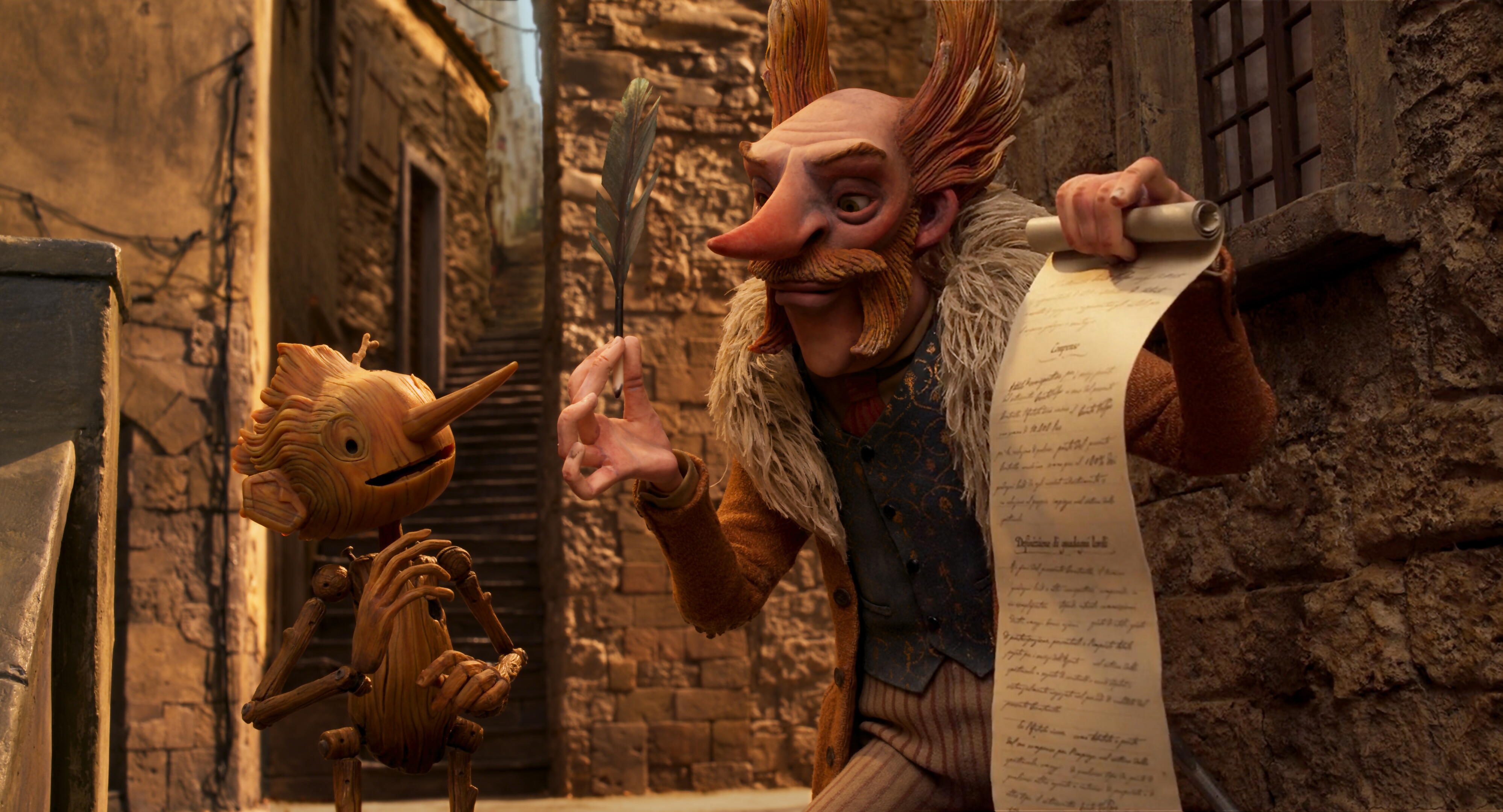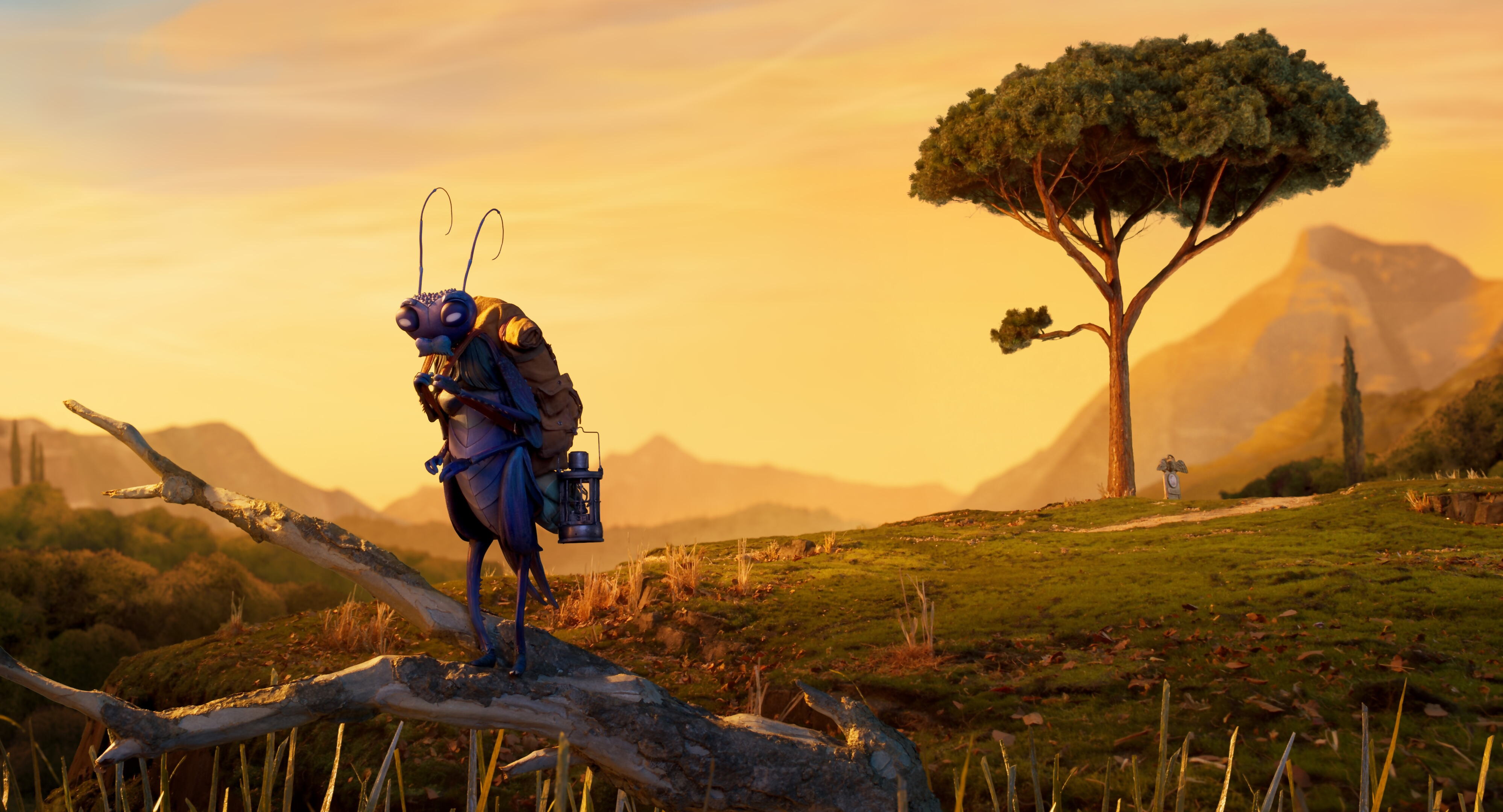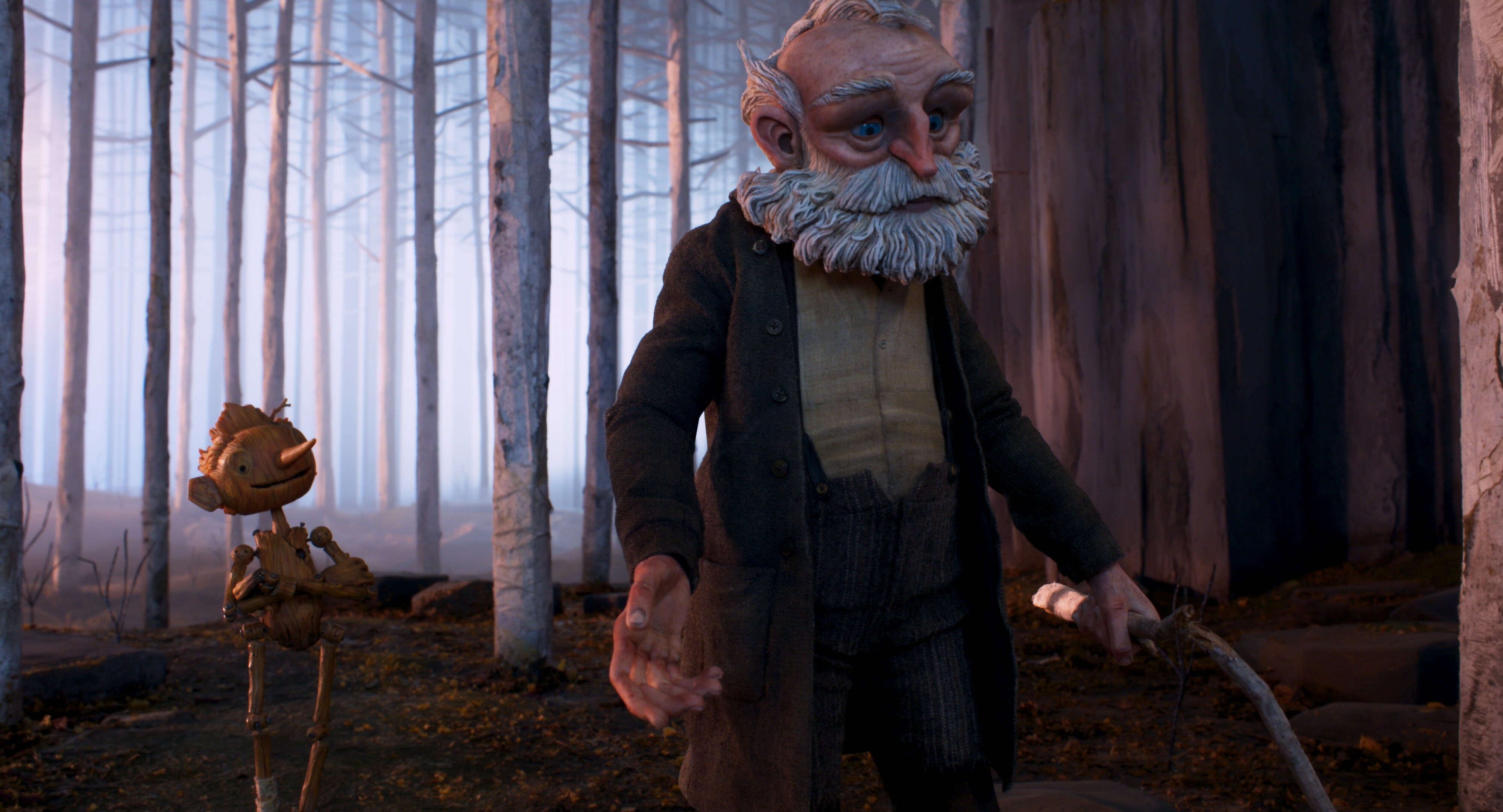
★★★★☆
Most of us are familiar with Disney’s 1940 classic Pinocchio, but did you know Walt Disney adapted that from a book? Published in 1883 and written by Carlo Collodi, ‘The Adventures of Pinocchio’ first brought us the story of a wooden puppet come to life.
Disney attempted to recapture the magic only weeks ago by giving Pinocchio the live-action treatment, but Disney+’s Pinocchio is a dull and flawed remake. Thank goodness for Guillermo Del Toro, whose new adaptation of Pinocchio’s story is as peculiar as it is charming.
The story takes place in Mussolini’s Italy. Geppetto (voiced by David Bradley) loses his son in a bombing and during a night of drunken rage, creates a surrogate son out of wood. The puppet, named Pinocchio, is mischievous and rowdy, quickly getting himself into trouble.

Credit: Netflix
Guillermo Del Toro’s Pinocchio focuses much more on the relationship between Geppetto and Pinocchio than Disney’s films. Pinocchio is still lured into a theatre career on his way to school, but Geppetto looks for him and eventually finds him, multiple times.
The setting, 1930s Fascist Italy, also feels appropriate for the story. It brings darkness and context to a story that has otherwise felt a little light on those. Pinocchio isn’t particularly child-friendly, but it’s also not solely for adults. It might be a tad too challenging for the younger kids, but mostly, Pinocchio treads the line between being an animated film for adults and children alike. Children are allowed and entitled to difficult films that offer opportunities to learn and grow from.
Hardcore Disney fans will be disappointed to learn that Del Toro is drastically changing the story, creating an entirely new one from the ashes of the original works. Pinocchio’s desire to be a real boy isn’t explored here as closely as in the past adaptations, the focus is on what it actually means to be human.
While the entire voice cast is exemplary, the animation is the real star here. The character designs are intricate and detailed; there is texture to them and their movements. They feel alive, but magical, fantastical. The entire film is laced with magic and surprising bouts of humour.

Credit: Netflix
It’s clear that Del Toro is operating at the very height of his craft here. His films have always been fascinating, but flawed; most of his filmography feels unfinished, never quite fulfilling their potential. Pinocchio, while not perfect, seems the most balanced of his more recent work.
With Pinocchio, Del Toro effortlessly fuses the old narrative and new themes together seamlessly. Visually, Pinocchio is among the year’s finest. The use of lighting is simply gorgeous and the script allows for the characters to feel more multi-dimensional. They’re flawed and Pinocchio himself is annoying, which is part of the reason why Pinocchio feels so life-like.
If there is something to criticise, it’s the plot’s repetitive nature. The film is a little stretched at nearly two hours, but it improves almost every aspect of the original story, an achievement in and of itself. Guillermo Del Toro’s Pinocchio is just wonderful; it pushes the art of stop-motion animation forward in new and exciting ways, but first and foremost prioritises the story of the wooden boy and his father.
Guillermo Del Toro’s Pinocchio received its World Premiere at the BFI London Film Festival and arrives on Netflix December 9.




